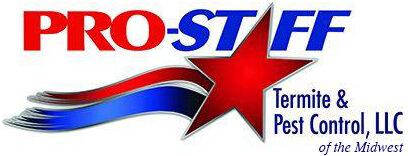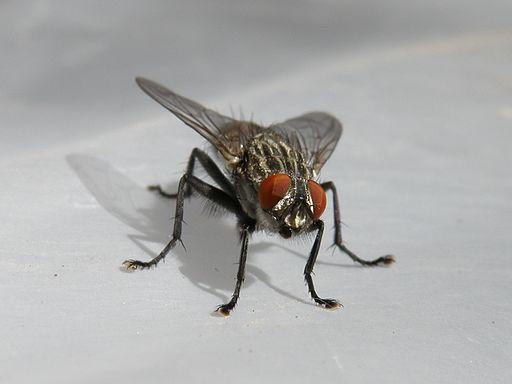
Flies come in all shapes and sizes. When these tiny creatures buzz around your home, your first instinct may be to reach for the swatter. However, a better solution would be to prevent inviting these bugs inside in the first place. Here are five different types of flies that buzz around Iowa and what causes them to fly into your home:
House Flies
Although these common household pests may seem ubiquitous, they have very distinct features. Every house fly has a dull gray body with vertical lines on top, as well as gold and silver stripes on their face. They enter through torn screens, gaps around doors and windows, and open doors and windows. House flies find their way in while on a quest for food. However, their definition of “food” is what we call garbage, animal feces, deceased animals, compost and waste water. Prevent inviting them in by cleaning up messes, placing trash in cans with tight-fitting lids, keeping food in sealed containers, and making sure there are no holes in your screens or foundation.
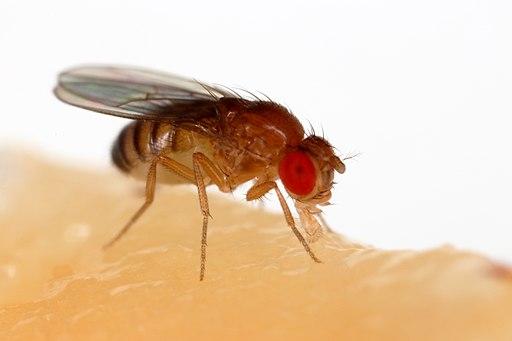
Fruit Flies
Unlike their counterparts, fruit flies aren’t particularly interested in dead things or living people. These very small flies are usually brown, tan or black and occasionally have red eyes. Grocery stores sometimes unknowingly sell fruit fly-infested produce, which is how most fruit flies find their way into homes. They sometimes enter homes while foraging, but they tend to stick to the outdoors, feeding on compost and fallen fruit from trees.
Fruit flies prefer to eat overripe fruits and vegetables, but they enjoy the occasional fermented liquid like beer, cider or vinegar. Prevent an infestation in your home by inspecting fruits and vegetables at the store, removing overripe produce from your home, and by removing garbage and washing dishes daily.

Blow Flies
If you see an overly large house fly, you may actually be looking at a blow fly. Blow flies tend to be black, green, blue or bronze in color with sponge-like mouthparts. These flies are specifically interested in deceased creatures and excrement. They lay their eggs in dead animals— in fact, they’re so well known for this that forensic entomologists use the development timeline of these flies to determine time of death.
Because of their morbid nature, blow flies carry dangerous diseases and spread the bacteria to homes, food and food prep areas. Prevent a blow fly infestation by storing trash in cans with tight-fitting lids, picking up pet feces and throwing away dead fruits from trees.
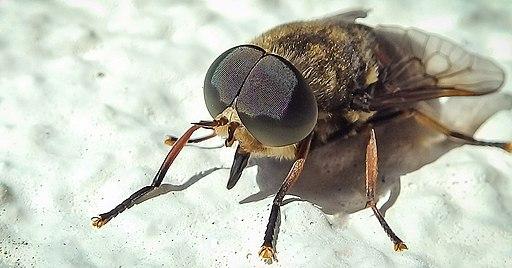
Horse Flies
Another large fly you don’t want to see in your house is the horse fly. These flies are long and gray or black, often with horizontal colored stripes in their eyes. Due to their preference for hot conditions, they’re typically found outside on sunny days with little wind. Both sexes feed on plant protein and nectar, but females also feed on blood to make their eggs.
They seek out dark objects like dark clothing, so wearing light clothing may help prevent a bite. Their bites are particularly painful, leaving behind large, red, itchy welts. Prevent a horse fly infestation by caulking gaps in windows, doors and foundation, replacing torn screens and not leaving doors open for long periods of time.
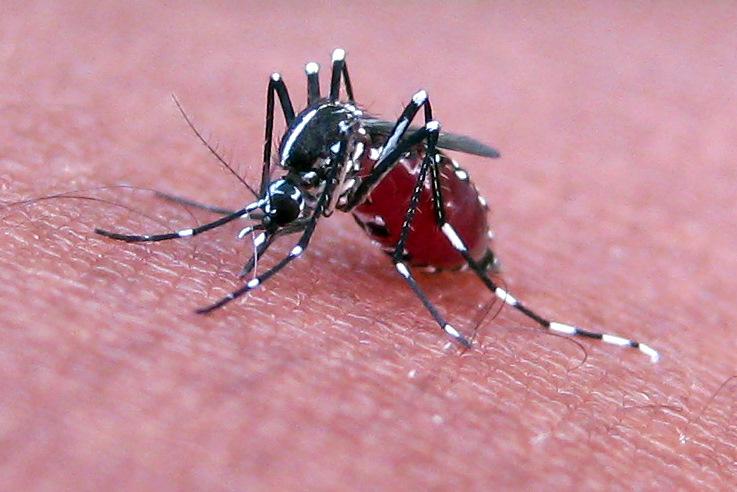
Mosquitoes
The most notorious of the bloodsucking flies, mosquitoes are most active in the spring, summer and early fall. These flies nest in still, standing water like streams, ponds, piles of wet trash, bird baths and clogged gutters. During the heat of the day, they rest in tall grasses, then feed at dawn and dusk. Like horse flies, mosquitoes live off plant nectar, but the females feed on blood to create their eggs.
Mosquitoes pose a serious risk to humans and animals because they spread diseases like West Nile virus, Zika virus, canine heartworm and malaria. Prevent an infestation by removing trash and standing water from your property, pruning your plants, cutting your grass and keeping windows and doors closed.
The Des Moines pest removal experts at Pro-Staff remove pests so you don’t have to worry about pesky bugs flying around your home or business. Give us a call at 515-279-7378 or contact us online.
